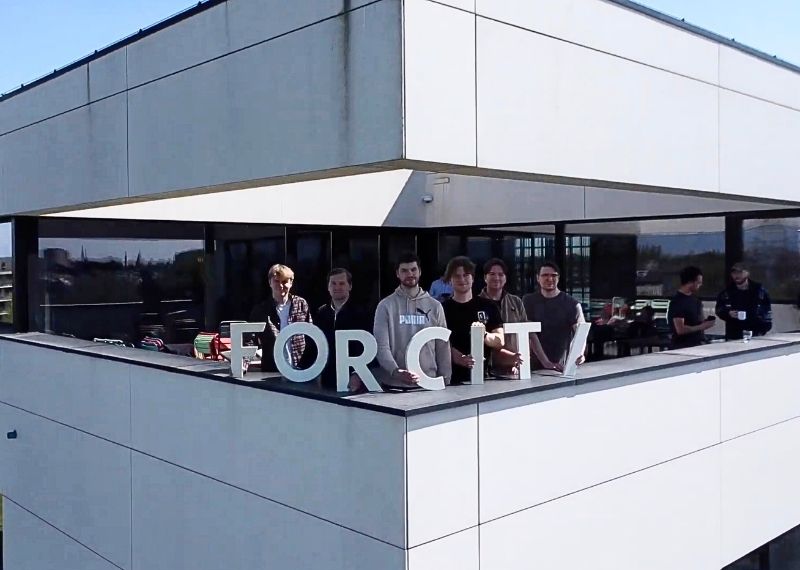From data to action: how AI and Elli can empower well-being
How AI and Elli can empower well-being

On September 24, we launched Elli, the data platform that helps HR teams securely collect, combine, and interpret well-being data—from wearables to employee surveys. This enables organizations to structurally improve their well-being policies.
Just one day later, Acceptable AI: The 7 Dimensions of a Human-Centered AI Evolution, the new book by FTI Health Expert Tom Braekeleirs, was released. In it, he explores how we can learn to trust AI as a technology that truly supports us. A perfect moment to sit down with Tom and discuss the power of AI, the barriers to data sharing, and how AI can make a real difference in well-being strategies.
From unstructured data to actionable insights
Many organizations aim to fully structure their data first, hoping to eventually be ready for AI applications. But according to Tom, that’s a misconception: “Of course, you need standards, think of the FAIR principles, but we won’t have the luxury of waiting until all data is neatly organized in columns. By then, it will already be outdated. Today, around 90% of available data is less than two years old, and about 90% is unstructured. Companies need to learn to work with that unstructured data and accept a certain level of imperfection.”
Until recently, extracting insights from such data was highly labor-intensive. That’s no longer the case. “We’re at a tipping point,” says Tom. “AI systems are now much better at handling unstructured information. This opens up new possibilities to combine qualitative and quantitative data. For an AI engineer, good enough is often good enough. You don’t need to dissect every answer if you already know it’s about well-being or workload. Metadata – the context – is often sufficient to start collecting insights.”
That’s exactly the approach Elli enables: combining structured and unstructured data from wearables, surveys, and HR processes in a smart and secure way to generate actionable insights.
Why companies still hold onto their data too tightly
Despite the growing number of technological solutions that allow for secure and anonymous data use – such as federated learning, synthetic datasets, and data aggregation – the instinct to protect data remains strong. Sometimes too strong, resulting in missed opportunities for valuable insights.
“GDPR is important and justified, but it’s often used as an excuse not to share data. As if it’s ‘my data.’ That’s a defensive stance. Today, there are plenty of ways to generate insights without compromising individual privacy – and to act in the interest of the greater good and progress in well-being,” says Tom.
Elli is a great example of this. The platform offers a secure infrastructure where datasets can be linked without the data itself needing to be merged. This also allows for thinking in terms of out of the band data: information not typically associated with HR or well-being, but which can still have an impact.
Tom shares an example: “Commuting distance. It’s not part of the well-being file, but it might explain why some employees opt out of afterwork activities or experience more stress. These kinds of insights can help tailor well-being actions to real-life situations.”
Ai is no longer just an IT party
The impact of AI on employees and their work experience is significant, and that’s why AI should be on the leadership radar. “AI isn’t a technology discussion. It’s a human discussion. It shapes how people experience their jobs, what roles they take on, and how they identify with their work. That’s strategic. And organizations need to think carefully about it.”
In his book, Tom outlines three laws to help organizations use AI wisely:
- The 100% Law: Every role will feel the impact of AI, directly or indirectly.
- The 10% Law: 90% accuracy is often good enough—perfection demands a disproportionate effort.
- The 1% Law: Even at 99% accuracy, human supervision remains essential. That’s where people make the difference.
Elli embodies that balance: the platform supports data-driven decisions around well-being, with a clear Return on Investment, while still leaving room for human interpretation of the generated insights.
More humanity through AI
According to Tom, the promise of AI isn’t cold automation; it’s more space for humanity. By spending less time collecting data, we gain more time to interpret insights and to act on them wisely, together.
Curious to discover what Elli can do for your organization?
👉 Contact us for a free consultation.
Interested in Tom Braekeleirs’ book?
📖 Check out the preview.



